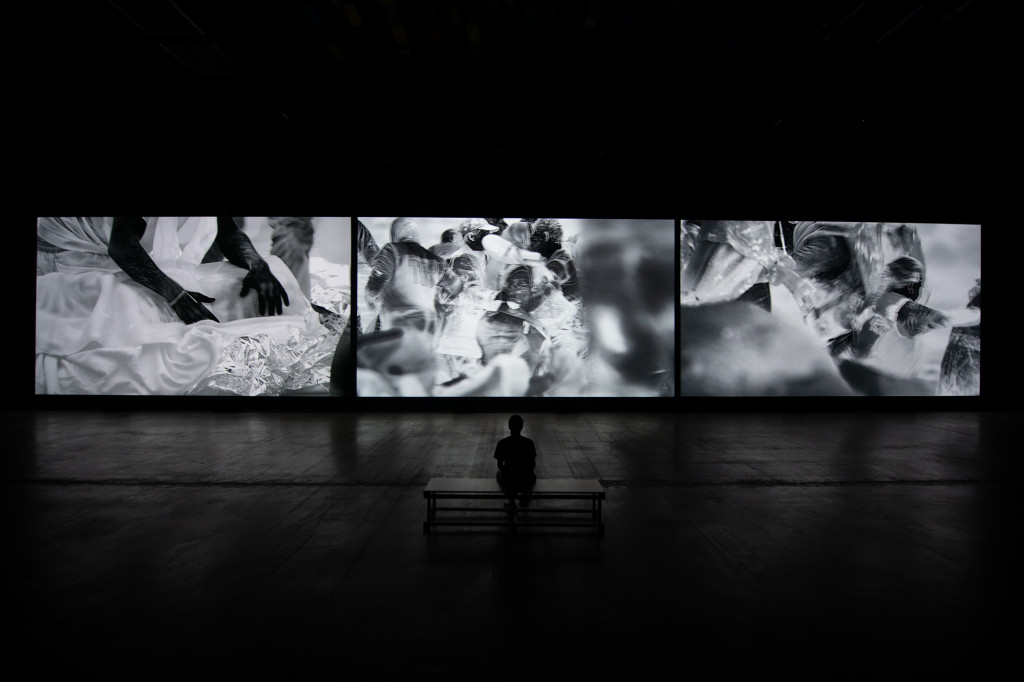Brut Art in the Age of Techno-Art

Richard Mosse, Incoming, 2014-2017, photo © David Gallard
“Brian Massumi fairly points out that the decodification processes of capitalism always open up new potentials for chance, at least for some time. The struggle and the hope of a free desire emerge at the periphery of the capitalized meaning. Capitalism dissolves the solid meanings in order to consolidate new meanings in terms of capital. Meanwhile, in between this decodification and recodification of meaning, there opens a free space for different and more liberating meanings. Today, humankind seems to be at the threshold of becoming free of its body within an immaterial web of information. Art certainly gains new meanings in such an era. The gradual disappearance of the perceptible body of art, namely, object of art, points to a shift from a material art to an immaterial art, which is not only a semantic but also an ontological decodification. According to Flusser and Bec , art has been turning into a human occupation that informs not only the object anymore but also the technology, the science, and, accordingly, life itself. The meaning of art today is, more than anything, to organize a new life interwoven with technological developments, changing the social and concrete structure of the planet further. Owing to its potentials of decodification and recodification, namely of the schizoanalytic character of art that creates new meanings, art has the capacity to inspire the future of the planet and humankind. In this sense, Flusser considers acknowledging the political character of art that is oppressed under profit-oriented capitalist reign not only as a necessity but also as an urgency. Art Brut points to a different thought and a different world in an era where capitalism presents itself as the economic and political system that does not have an alternative. At the periphery of society, Art Brut works, as examples of the schizophrenic production, illustrate the possibilities of handling the existence as a multiplicity of subjectivities without forcing it within this or that category. They illustrate a primary human activity of creating and recreating meaning freely. They express the kind of freedom that is capable of giving new perceptions and new meanings to the world. Rather than being mystic tales of an archaic authentic kind of creation, Art Brut works inspire us to probe the boundaries of our thinking at the threshold of a cultural and perhaps even an ontological transition and rethink the scope of our creativity therein. Owing to their potential for undermining the established codes, Art Brut works open a new space for thinking of creation, art, and human being in terms of a more free thought. The contemporary world witnesses the disappearance of the outside as the place of resistance, and under the capitalist reign “people [are] now at its most molecularized” as Deleuze and Guattari pointed out. Art Brut works inspire us to rethink the self and other(s) in order to make any collective action possible in such an era.”
.
Celik (Mathur), Isil Ezgi. 2020. “On the Locus of Art Brut, Today.” The International Journal of Social, Political and Community Agendas in the Arts 15 (4): 1-8. doi:10.18848/2326-9960/CGP/v15i04/1-8.